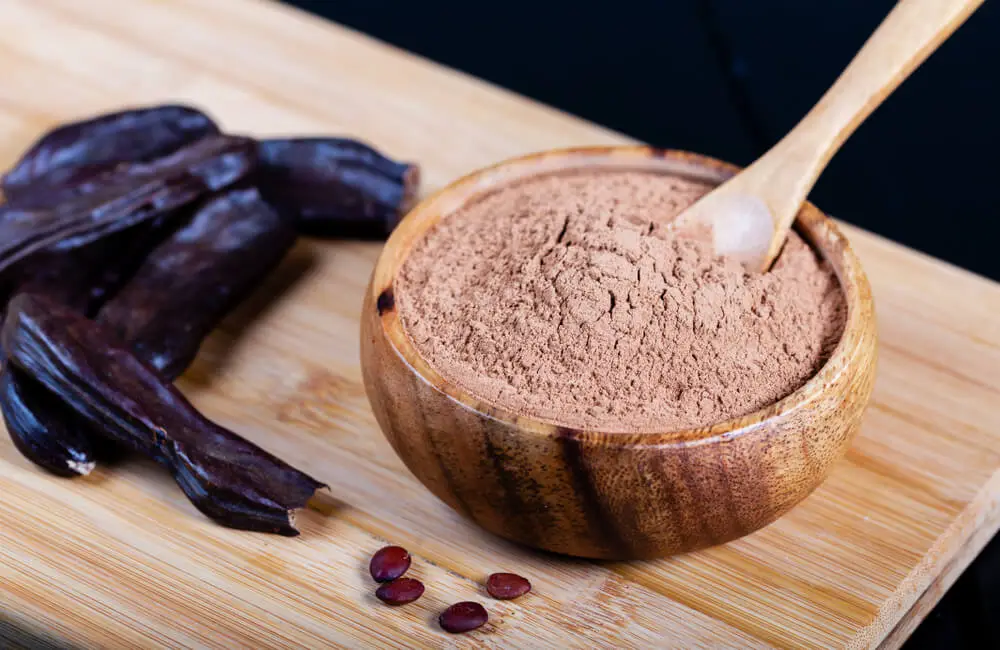
Carob is gaining well-deserved attention for its powerful antioxidant properties and its impressive benefits for immune health. As someone who’s dabbled in everything from elderberry to turmeric, I’ve found carob to be an unsung hero in the world of natural immunity boosters. I remember trying carob years ago as a chocolate substitute, and while I was skeptical at first, its unique flavor and health benefits quickly won me over. Beyond its delicious taste, carob’s rich content of antioxidants makes it a fascinating superfood worth exploring for its potential to reduce inflammation, fight oxidative stress, and strengthen the immune system.
What really piqued my curiosity was hearing about carob’s history as an ancient food used for both nourishment and medicine. This naturally sweet, nutrient-rich pod has been a staple in the Mediterranean diet for centuries. Even my friend Ana, who’s originally from Greece, recalls her grandmother preparing carob syrup to ward off seasonal ailments. And she swears by it! In our modern world, where oxidative stress from pollution, processed foods, and daily stressors weakens our immune response, carob offers a natural, tasty, and nutrient-dense way to defend against free radicals that contribute to chronic illness and premature aging.
With growing scientific interest and emerging studies around its health benefits, carob is proving to be much more than just a chocolate alternative. So, let’s dive deeper into what makes carob’s antioxidant properties so remarkable and why it deserves a place in your daily routine.
The Nutrient-Packed Antioxidants in Carob
Carob contains a wealth of antioxidants, which are essential in neutralizing free radicals—those unstable molecules that cause cellular damage, inflammation, and premature aging. Polyphenols, flavonoids, and tannins are some of the main antioxidants found in carob. These compounds are scientifically proven to play a significant role in boosting immunity and fighting off disease-causing pathogens. For instance, polyphenols in particular have been shown to improve immune function by modulating inflammation and preventing cellular oxidative damage.
How Antioxidants in Carob Protect the Body
- Reduction in Oxidative Stress
Oxidative stress, which occurs when there’s an imbalance between free radicals and antioxidants in the body, can weaken immune responses and lead to various diseases, including heart disease and diabetes. Carob’s high polyphenol content actively fights this imbalance. Studies show that carob antioxidants can scavenge these free radicals, effectively neutralizing their damaging effects. This balancing act promotes healthier cells and tissues, which is essential for immune resilience. - Prevention of Chronic Inflammation
I’ve always had a fascination with foods that can reduce inflammation, as it’s a common precursor to many chronic conditions. The tannins in carob, for instance, have been shown to reduce inflammation significantly. For those with conditions like arthritis or chronic fatigue, adding carob to the diet might bring a noticeable difference. Carob’s anti-inflammatory properties go hand-in-hand with its ability to enhance immune function, providing a dual benefit that can be hard to find in other foods. - Supports Gut Health for Immune Strength
Gut health and immunity are closely linked, and carob plays an interesting role here. Studies have found that carob fiber can support healthy digestion and prevent harmful bacteria from causing gastrointestinal infections. A friend of mine once struggled with digestive issues, and carob’s natural fiber proved beneficial in soothing her symptoms and keeping her gut happy. When our gut is healthy, our immune system operates more efficiently, which makes carob a smart choice for overall health support.
The Science Behind Carob’s Immune-Boosting Abilities
Research into carob’s antioxidant properties has revealed promising results. One study published in the Journal of Medicinal Food examined carob’s polyphenols and their effect on free radicals. The researchers concluded that these polyphenols were highly effective in reducing oxidative stress markers in the body. Another study in Food and Function highlighted carob’s ability to improve cell health and immune response by reducing inflammation and supporting antioxidant activity within cells. These findings offer valuable insights into how carob might reduce the risk of certain diseases, making it a potent natural supplement for immune health.
Incorporating Carob into Your Diet for Immune Support
- Carob Powder
If you’re new to carob, carob powder is a simple and versatile way to start. It’s my personal favorite for smoothies or as a natural sweetener for coffee. Unlike cocoa powder, carob powder is naturally sweet and requires no added sugar, making it a healthier option that’s also packed with immune-boosting antioxidants. - Carob Syrup
Carob syrup has been used for centuries as a natural remedy for respiratory infections and sore throats. If you’re feeling under the weather, try adding a spoonful of carob syrup to hot water with lemon. I like to think of it as nature’s immune elixir, especially during flu season. - Baked Goods and Snacks
Carob chips or powder can replace chocolate in baked goods without sacrificing flavor. I’ve tried using carob in cookies, and even my kids, who are usually chocolate purists, didn’t notice the difference! Incorporating carob into homemade granola bars, muffins, or energy balls makes for a nutritious and antioxidant-rich snack option.
Comparing Carob to Other Antioxidant-Rich Foods
| Antioxidant Food | Key Compounds | Health Benefits |
|---|---|---|
| Carob | Polyphenols, flavonoids, tannins | Reduces oxidative stress, supports immune health, improves gut health |
| Green Tea | Catechins, polyphenols | Anti-inflammatory, promotes heart health, boosts metabolism |
| Blueberries | Anthocyanins, vitamins C & E | Protects against heart disease, improves brain function |
| Dark Chocolate | Flavonoids, magnesium | Supports heart health, improves mood, reduces blood pressure |
Carob holds its own against other well-known antioxidant sources. It not only matches these foods in antioxidant content but also offers unique compounds, like tannins, that specifically target inflammation and gut health.
Real-Life Benefits of Carob: Stories and Testimonials
When it comes to carob, I’ve found that personal experiences speak volumes. My friend Ana, the one with the Greek grandmother, credits carob for her family’s overall resilience to common colds and flu. After incorporating carob syrup into her diet, she noticed that her seasonal allergies and tendency to catch colds diminished. Another friend, John, who’s an athlete, started using carob powder as a part of his post-workout smoothie, citing improved energy levels and quicker recovery times. Personally, I love that carob is caffeine-free, so I can enjoy it later in the day without worrying about sleeplessness.
Embrace the Antioxidant Power of Carob for a Healthier You
Incorporating carob into your diet is a flavorful, simple way to boost your immune system and protect against oxidative damage. Its unique blend of antioxidants—polyphenols, flavonoids, and tannins—works wonders in strengthening the body’s natural defenses and reducing inflammation. Whether you’re blending it into smoothies, using it in baking, or enjoying it as a syrup, carob offers an easy path to better health that fits well into daily life.
The science is clear, and the stories are compelling: carob isn’t just another health trend; it’s a time-tested, nutrient-dense food with lasting benefits. Give it a try—your immune system will thank you!








